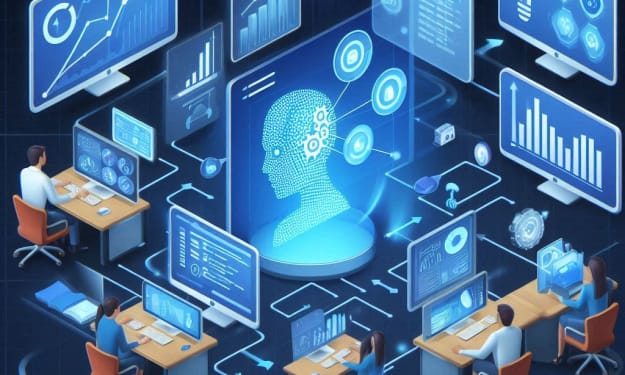Why environmental change activity requires "de-growth" to make our planet supportable
Environmental change activity requires "de-growth"

Environmental change really is a significant existential danger, one we're plainly not tending to quickly enough. In any case, as people, there's little we can do to stop it on a stupendous scale — it will require worldwide participation to survive. In any case, the going with sensations of vulnerability when confronted with such an overwhelming emergency can cause numerous to feel deadened with despair. So what should be possible?
"Dial Back: The De-growth Statement," another book from College of Tokyo reasoning teacher Kohei Saito, offers in excess of a finding of the foundational issues that carried us to this second; it spreads out, in clear and well-informed language, how those issues can be completely tended to. In 2020, when "Dial Back" was initially distributed in Japan, it went by the undeniably really fitting title "Capital in the Anthropocene" — with "Anthropocene" being the proposed land period that started when human movement began profoundly adjusting normal circumstances in the world.
"My thought is truly not state communism, but rather related model creation."
Saito's contention, as interpreted by Brian Bergstrom, is that environmental change exists since people as an animal categories focus on monetary development rather than financial supportability. Free enterprise itself, Saito attests, is impractical. Despite the fact that benevolent liberal lawmakers like to push for Green New Arrangements in the expectation of proceeding constant financial development without the ensuing environmental damage, Saito contends entrepreneur social orders need to ceaselessly consume assets to stay prosperous.
Thus, private enterprise itself definitely achieves vast issues like environmental change, living space obliteration, plastic contamination and other natural issues. The main arrangement is for mankind overall to dial back our fixation on work, efficiency and realism. Remarkably, Saito stresses that the majority of the weight to consume less falls on the most well off among us.
Saito doesn't assume acknowledgment for these perceptions. Scholar Karl Marx fostered a way of thinking during the 1860s that Saito portrays as "eco-communist" (especially in Saito's past work, "Karl Marx's Eco-Communism"). While the German thinker's initial works like "The Socialist Declaration" encouraged the regular workers to demand accepting its reasonable part of the advantages of industrialism, Marx's later compositions applauded Native people groups in the Americas, India and Algeria for living in communities that focused on feasible ecological practices.
Thusly, "Dial Back" is that uncommon crossover among philosophical statements: It opens new bits of knowledge into a current philosophy while elevating something particular of its own. Salon talked with Saito about "Dial Back" and the relationship environmental change needs to financial matters.
For the individuals who are absolutely new to crafted by Karl Marx, might you at any point if it's not too much trouble, make sense of how one should recognize his initial functions and the later works that you portray as "eco-communism"?
Communism is known for communism, and communism is many times depicted as the abuse of the average workers. Private enterprise tends to increment advancements and advance developments in view of market rivalry. However, Marx felt that once the laborers assume control over influence and throw out the entrepreneurs, they can use the advancement of useful powers for themselves — more riches, all the more prosperity.
In any case, there is one issue: Supportability. Since as Marx began to concentrate on inherent sciences later during the 1850s and 1860s, he came to understand the improvement of advancements in private enterprise really don't make a condition for liberation of the working people. Since besides the fact that those advancements control the specialists all the more productively, they weaken the old arrangement of occupations and make more problematic, low gifted positions. Simultaneously those advances exploit from nature all the more proficiently and make different issues like fatigue of the dirt, enormous deforestation, and the depletion of the fills, etc.
Marx came to understand that this sort of innovation sabotages material circumstances for feasible advancement of individuals. Also, the focal idea for Imprint around then in the sixties is digestion. He imagines that this metabolic communication among people and nature is very fundamental for any sort of society, yet the issue of private enterprise is it truly changes and coordinates this whole digestion among people and nature for benefit making. Advancements are likewise utilized for this reason. So innovations are not to make better life, available energy and practical creation, yet rather it takes advantage of laborers and nature simultaneously for more development, more benefit, etc.
About the Creator
Mohammad Nasim
Hi! I am Mohammad Nasim. I am providing Article Writing, Content Writing, SEO Writing, Business Writing, Blog Writing, Travel Writing, Technical Writing & many more services.
Enjoyed the story? Support the Creator.
Subscribe for free to receive all their stories in your feed. You could also pledge your support or give them a one-off tip, letting them know you appreciate their work.





Comments
There are no comments for this story
Be the first to respond and start the conversation.